Comprehensive Guide to Garden Maintenance in Islington
Introduction to Garden Maintenance
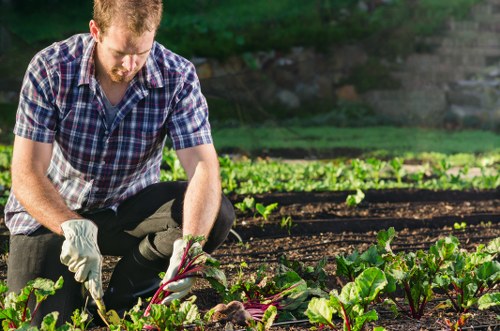
Maintaining a beautiful garden in Islington requires dedication, knowledge, and the right tools. Whether you're a seasoned gardener or a novice, understanding the unique climatic and soil conditions of Islington is essential for cultivating a thriving outdoor space.
Garden maintenance encompasses a variety of tasks, including planting, pruning, weeding, and pest control. Each of these activities plays a crucial role in ensuring your garden remains healthy and aesthetically pleasing throughout the year.
In this guide, we'll explore the best practices for garden maintenance in Islington, providing you with actionable tips to enhance your garden's beauty and functionality.
Understanding Islington's Climate
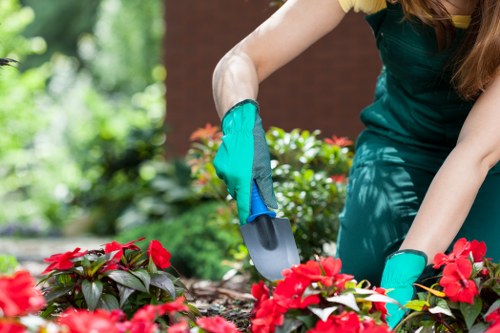
Islington enjoys a temperate maritime climate, characterized by mild winters and warm summers. This climate is generally favorable for a wide range of plants, but it also presents specific challenges that gardeners must address.
Rainfall is well-distributed throughout the year, but occasional heavy downpours can lead to waterlogging, while dry spells may require supplemental watering. Understanding these patterns helps in selecting appropriate plant species and scheduling maintenance activities.
Additionally, Islington's urban environment means higher levels of pollution and limited green spaces, which can impact plant health. Choosing pollution-tolerant plants and implementing effective soil management practices are key to successful gardening in this area.
Soil Preparation and Improvement
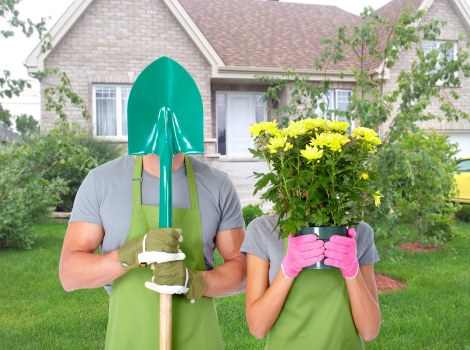
Healthy soil is the foundation of a thriving garden. In Islington, soils can vary from clay-heavy to sandy, each type requiring specific amendments to enhance fertility and drainage.
Start by testing your soil's pH and nutrient levels. This information will guide you in selecting the right fertilizers and soil conditioners. Incorporating organic matter, such as compost or well-rotted manure, can improve soil structure, increase nutrient content, and promote beneficial microbial activity.
Regularly aerating the soil helps prevent compaction, especially in high-traffic garden areas. This practice ensures that roots receive adequate air and water, supporting robust plant growth.
Plant Selection for Islington Gardens
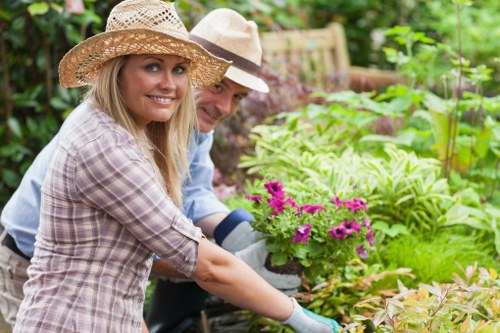
Choosing the right plants is crucial for the success of your garden. In Islington, opt for species that thrive in temperate climates and can withstand urban conditions.
Perennials, such as lavender, echinacea, and hostas, offer long-term beauty with minimal maintenance. Annuals like marigolds and petunias provide vibrant colors and can be rotated seasonally to keep your garden dynamic.
Native plants are particularly advantageous as they are adapted to the local environment, require less water, and are more resistant to local pests and diseases. Incorporating a mix of native and ornamental plants can create a balanced and resilient garden ecosystem.
Pruning and Trimming Techniques
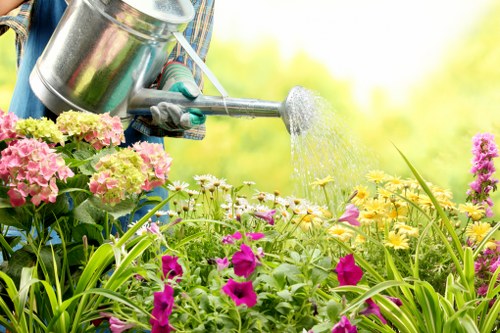
Regular pruning is essential for maintaining the shape and health of your plants. It promotes better air circulation, reduces disease risk, and encourages vigorous growth.
Understand the specific pruning needs of each plant type. For instance, flowering shrubs often require pruning after their blooming period, while fruit trees benefit from annual maintenance to enhance fruit production.
Use sharp, clean tools to make precise cuts, and always follow the natural growth patterns of the plants. Proper pruning techniques not only improve the appearance of your garden but also extend the lifespan of your plants.
Weed Control Strategies
Weeds can quickly overtake a garden if not managed effectively. In Islington, where space may be limited, maintaining a weed-free garden is essential for plant health and aesthetics.
Employ a combination of manual and chemical weed control methods. Regularly hand-pulling weeds ensures immediate removal, while mulching can prevent weed seeds from germinating by blocking sunlight.
Consider using eco-friendly herbicides to minimize environmental impact. Additionally, promoting a dense canopy of desirable plants can naturally suppress weed growth by limiting available space and resources for unwanted species.
Pest and Disease Management
Gardens in Islington are susceptible to various pests and diseases that can compromise plant health. Early detection and integrated pest management (IPM) are key to maintaining a healthy garden.
Regularly inspect your plants for signs of pests such as aphids, slugs, and caterpillars. Implement natural predators like ladybugs and birds to control pest populations organically.
Practice good sanitation by removing diseased plant parts and ensuring proper air circulation to prevent fungal infections. Using disease-resistant plant varieties can also reduce the likelihood of widespread outbreaks.
Seasonal Garden Care
Different seasons bring unique challenges and opportunities for garden maintenance in Islington. Adapting your care routine to seasonal changes ensures year-round garden health.
Spring: Focus on planting new species, fertilizing soil, and pruning early-flowering shrubs.
Summer: Maintain consistent watering, control weeds, and manage pests actively.
Autumn: Prepare for colder months by clearing fallen leaves, planting autumn-blooming flowers, and mulching perennials.
Winter: Protect delicate plants from frost, plan next year's garden layout, and perform tool maintenance.
Watering Techniques and Irrigation
Efficient watering is vital for garden success, especially during dry spells. Understanding the water needs of different plants helps conserve resources and ensure optimal growth.
Implement drip irrigation systems to deliver targeted water directly to plant roots, reducing evaporation and water wastage. Timers and moisture sensors can automate watering schedules, ensuring consistency without manual intervention.
Watering in the early morning minimizes evaporation and allows plants to absorb moisture before the day's heat. Additionally, using rainwater harvesting systems can supplement your garden's water supply sustainably.
Fertilization and Nutrient Management
Providing adequate nutrients is essential for plant health and productivity. Regular fertilization supports vigorous growth, vibrant blooms, and robust foliage.
Choose fertilizers based on the specific needs of your plants. Organic options like compost, bone meal, and fish emulsion enrich the soil naturally, promoting sustainable garden practices.
Follow a consistent fertilization schedule, adjusting based on seasonal growth patterns and soil nutrient levels. Over-fertilizing can lead to nutrient runoff and environmental harm, so it's important to apply the right amount for each plant type.
Lawn Care and Maintenance
A well-maintained lawn adds significant value and beauty to your garden. In Islington, where space is often limited, a healthy lawn serves as a versatile space for relaxation and recreation.
Regular mowing, aeration, and fertilization are fundamental to lawn care. Ensure your mower blades are sharp to promote even cutting, and vary mowing patterns to prevent soil compaction.
Address common lawn issues like moss growth and bare spots promptly. Overseeding and top-dressing can rejuvenate tired lawns, while proper drainage prevents waterlogging and root diseases.
Garden Tools and Equipment
Having the right tools is essential for efficient garden maintenance. Quality equipment not only makes tasks easier but also ensures better results.
Invest in durable, ergonomic tools such as pruning shears, spades, rakes, and watering equipment. Regularly maintain and clean your tools to extend their lifespan and prevent the spread of diseases between plants.
Consider eco-friendly options like manual rather than gas-powered tools to reduce your garden's carbon footprint. Additionally, storage solutions like sheds or tool cabinets keep your equipment organized and readily accessible.
Creating Sustainable Gardens
Sustainability is increasingly important in garden maintenance. Implementing eco-friendly practices not only benefits the environment but also enhances the resilience of your garden.
Incorporate composting to recycle organic waste into valuable soil amendments. Use rain barrels to collect and reuse rainwater, reducing dependence on municipal water supplies.
Choose native and drought-resistant plants to minimize water usage and support local biodiversity. Additionally, reducing chemical pesticide and fertilizer use promotes a healthier ecosystem for beneficial insects and wildlife.
Hiring Professional Garden Maintenance Services
While DIY garden maintenance is rewarding, professional services can offer expertise and efficiency, especially for larger or more complex gardens in Islington.
Professional gardeners provide comprehensive care, including landscape design, soil analysis, and specialized treatments for pests and diseases. Their experience ensures that your garden receives tailored care that aligns with its specific needs.
Hiring experts can save you time and effort, allowing you to enjoy your garden without the stress of maintenance tasks. **Contact us today** to schedule a consultation and discover how our services can transform your outdoor space.
DIY Garden Maintenance Tips
Maintaining your garden doesn't have to be overwhelming. With some planning and the right techniques, you can achieve a beautiful garden on your own.
Start by creating a maintenance schedule that outlines tasks for each season. Keeping a checklist helps ensure consistency and prevents tasks from being overlooked.
Utilize online resources and gardening books to expand your knowledge and troubleshoot common issues. Engaging with local gardening communities in Islington can also provide valuable insights and support.
**Book your service now** if you need professional assistance or personalized advice to enhance your DIY efforts.
Enhancing Garden Aesthetics
Beyond basic maintenance, enhancing the aesthetics of your garden can create a more inviting and enjoyable space.
Incorporate elements like garden pathways, seating areas, and decorative features to add visual interest and functionality. Proper lighting can extend the use of your garden into the evening hours, showcasing plants and features beautifully.
Experiment with color schemes and plant arrangements to create focal points and balance. Seasonal blooms and foliage changes keep the garden dynamic and engaging throughout the year.
Conclusion
Effective garden maintenance in Islington requires a blend of knowledge, effort, and the right strategies. By understanding the local climate, preparing your soil, selecting appropriate plants, and implementing sustainable practices, you can cultivate a vibrant and resilient garden.
Whether you choose to maintain your garden yourself or hire professional services, the key is consistency and attention to detail. Embrace the joys of gardening and transform your Islington outdoor space into a haven of beauty and tranquility.
**Contact us today** to get started on your garden maintenance journey and enjoy a flourishing garden all year round.

